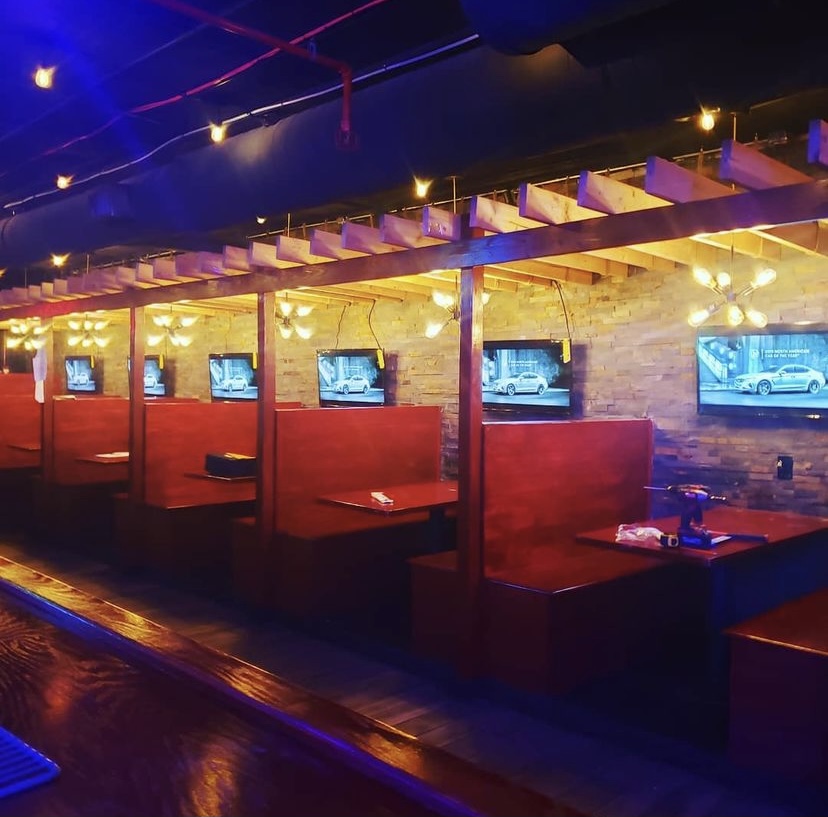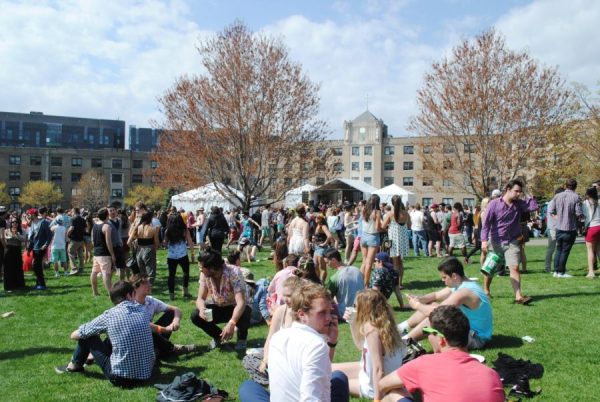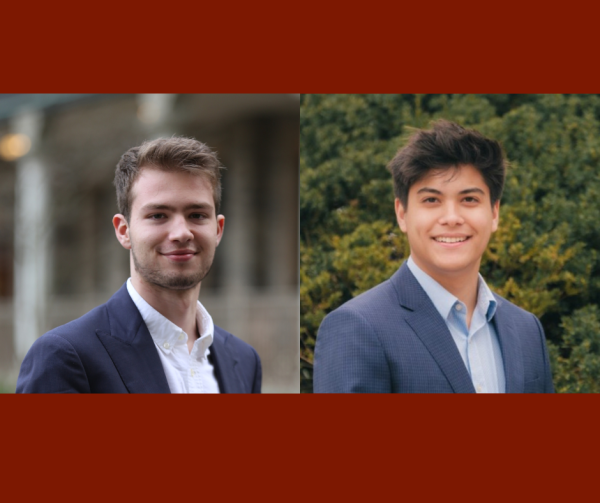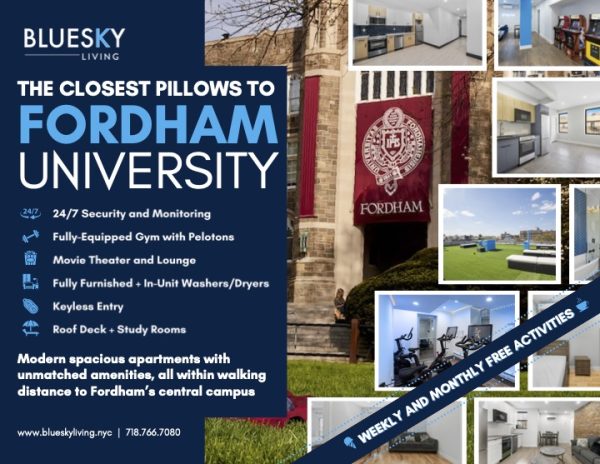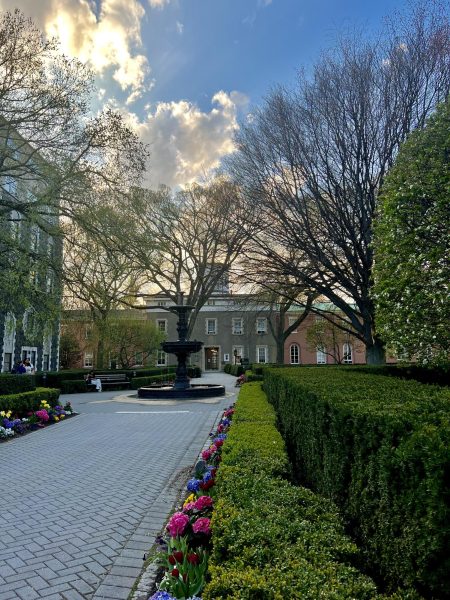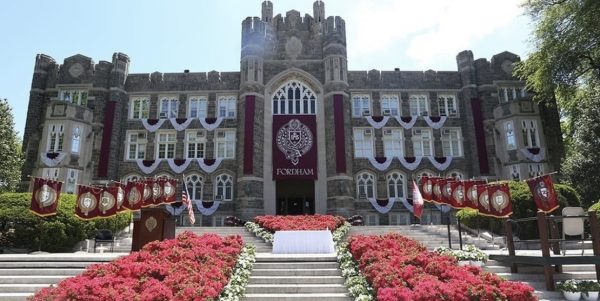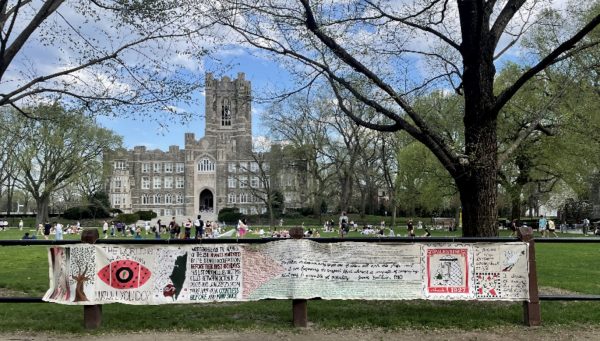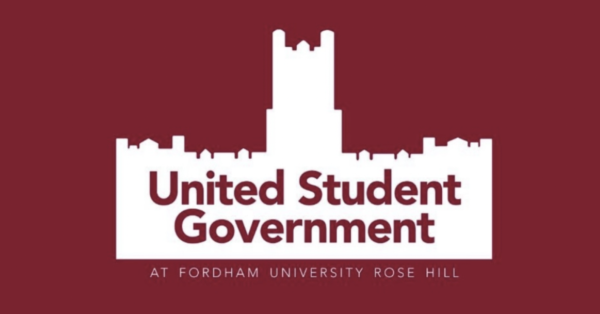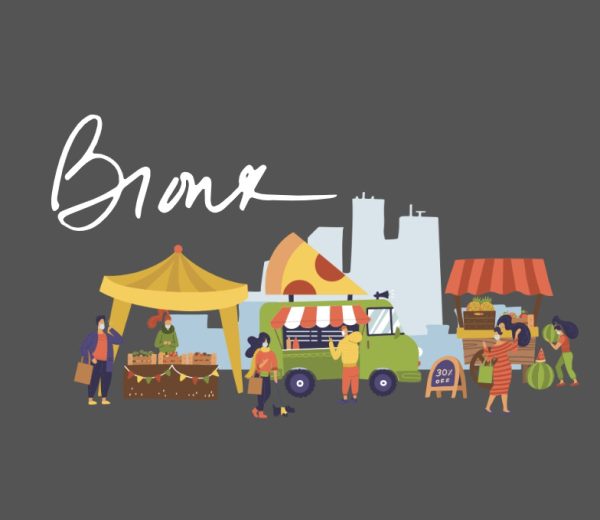Fordham’s Off-Campus Social Scene Thrives in Spite of COVID-19 Pandemic
After a coronavirus outbreak on campus that affected over 239 people, an email sent by COVID-19 Coordinator Marco Valera on March 3 stated that “indoor, in-person social gatherings — especially those in which attendees are eating and drinking, and are not socially distanced — are the most likely way to [contract COVID-19].”
Despite this warning and a current positive test rate of 1.36% at Rose Hill, off-campus restaurants, bars and parties seem to be thriving.
Last semester, the popular sites for Fordham students to gather and eat or drink, barring private residences, seemed to be Barnyard BBQ and Howl at the Moon. This semester, students seem to prefer the company of Clinton Hall and Last Call. However, Barnyard remains on the list of popular sites, according to a freshman student at Rose Hill, who asked to remain anonymous.
Sharing their experience at Barnyard last semester, the student told the Ram via text message that “it was very normal.”
“They were enforcing the New York state guidelines about staying at the table, ordering food etc.,” said the student. “But when they opened up indoor dining, it drastically changed. People inside would head outside to see their friends and walk around without masks, and waiters tried to yell at people, but, obviously, no one was listening.”
The student shared a video with The Ram that was taken this semester. In the shaky video, a large group of Barnyard customers gathered in close proximity as party lights quickly shifted colors overhead.
In a face-to-face interview, Simon Kajtazi, owner of Barnyard BBQ, spoke about the facility’s COVID-19 protocols. “During the pandemic, we have the lines up over here, the things on the floor that say to keep your distance, hand sanitizers, tables are pretty much six feet apart,” Kajtazi said.
Kajtazi also talked about the process that customers are required to go through to enter the building. All customers have their temperature checked. However, while non-Fordham student customers need a recent negative COVID-19 test result to enter, Fordham students need only show that day’s VitalCheck to ensure that they are not carrying the disease.
Fordham students familiar with the university’s VitalCheck system know how simple it is to gain clearance. Based on an honor system, students are asked to read through a list of qualifications, including symptoms, international travel, positive COVID-19 tests or known exposure. Students can either click “No to all above” and receive work clearance or “Yes to some above” to alert the university.
In response to the university’s claim about in-door social gatherings as sites for COVID-19 infections, Kajtazi said, “You can’t put both [house parties and bars] together.” Kajtazi described the responsibilities that restaurants and bars have to meet to avoid losing their liquor license or receiving fines from the state.
House parties, Kajtazi says, have no rules. “It’s hard to tame young kids,” Kajtazi added.
Kajtazi was not wearing a face mask for the duration of the interview.
When asked to comment about bars’ contribution to COVID-19 spread, John Carroll, associate vice president of Fordham’s Public Safety department, said they were a risk factor for the Fordham community.
“Congregating in local bars definitely contributes to increased spread of COVID-19, as they do not enforce Fordham policies of face masks and social distancing,” said Carroll. “Because the University has no authority nor jurisdiction over these businesses, it has made repeated notifications to New York City authorities and New York State Liquor Authority seeking enforcement actions at these locations. Whether or not students are first years, most of whom are underaged, or not, anyone gathering in these locations and disregarding COVID-19 precautions is endangering themselves and every member of the on and off-campus communities.”
Frequent partying and bar-drinking off campus can have detrimental effects on the Fordham community.
“A group of people who willingly filmed themselves and posted publicly to their socials was at a bar partying with a bunch of people unmasked,” recalls Francesca Rizzo, FCRH ’24. “It was these same individuals that contracted coronavirus days later and brought it back to our dorm.”
Rizzo and her roommates ended up testing positive for coronavirus after coming into contact with these students. “My schoolwork weeks later is still suffering because of how much moving to quarantine and getting coronavirus shook me up.”
“I just feel like when there is a clear instance of poor behavior and failure to follow simple rules of the dorm, like wearing a mask, there should be ways to enforce it and penalize those who don’t adhere,” said Rizzo.
Beyond the student community, students who frequent these locations also impact the local Bronx community. After witnessing a group of drinking Fordham students recklessly interacting with traffic off-campus, Nicole St. Jacques, FCRH ’24, immediately understood the dangers that irresponsibly drinking students have on the off-campus community.
“I thought it was super disrespectful to the Bronx residents who were likely coming home from long days at work or going to night shifts,” St. Jacques said. “It makes me upset that the predominantly white students of Fordham who go to bars are so inconsiderate to the surrounding Bronx area.”
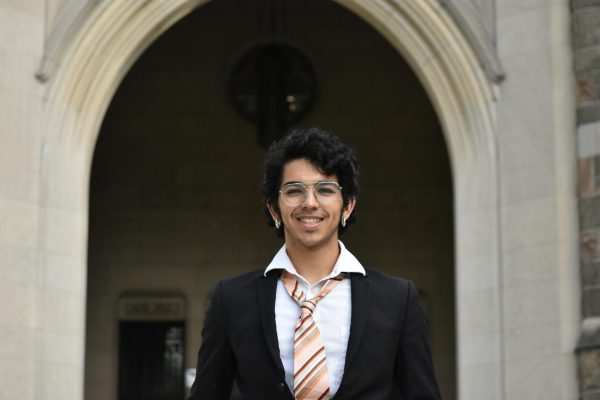
Sebastian Diaz is a senior from Chapel Hill, N. C. who is double majoring in journalism and film. After starting as a news reporter for The Fordham Ram...

